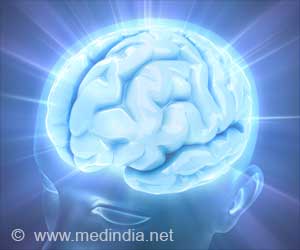Aye Zindagi, directed by Dr. Anirbhan Bose, is a nephrologist who turned to direction to tell the real-life story of an organ donor.
Highlights :
- Dr. Anirban Bose is a nephrologist who got inspired and turned into a director by the true story of a gentleman he met at a fund raising event for organ donation
- He struggled for two years to find the right person to direct the film and finally decided to direct it on his own
- Aye Zindagi - An inspiring movie highlighting the transformative role of organ donation in people’s lives
2. Where did the idea of Aye Zindagi come from? Was Aye Zindagi a book in your mind or you decided to jump straight to a script?
Ans. The idea of Aye Zindagi… well basically it is a true life story. It is the story of a gentleman I encountered during a fundraiser for MOHAN USA which raises funds for non-governmental organisations that work in the field of Organ Transplantations. His story was so powerful that it brought me to tears. I wanted to get the story out to the world, so initially I wrote an article and a lot of people who read it told me that it would make a great film.
Aye Zindagi certainly not a book in my mind, it was such an unusual ‘life is stranger than fiction’ kind of story, that I felt if I wrote it as a book, it wouldn’t be believable. In fact, that is the beauty and the richness of the story of Aye Zindagi.
Ans. So, I tried to get this script turned into a movie for quite some years and met a lot of producers in Bombay… most of them said that it is a beautiful story but it didn’t lead anywhere. Then I met Shiladitya (Bora) who said YES and things started rolling. In the search for a director, I felt that they were not ‘grasping the essence as much as I was’ like one director that I met, wanted to make it a heart transplant story as it would be perhaps more emotional.
4. Was Revathy your first choice to play the lead?
Ans. Revathy was always the first choice to play the lead as she has that kind of beauty that I was looking for. In fact, when I wrote the script, I named the character Revathy because I had her in mind. And when she said Yes, I was thrilled. It turns out that she is the first celebrity in India to sign an Organ Donor card, which is too many coincidences to not have her play the lead, so I am just very glad she said yes.
5. Many a times as a film progresses, changes have to be made to make it more acceptable to the masses, any such changes in Aye Zindagi?
Ans. This is a story based on real life and I have tried to stick to the plot points, In fact the story is so rich and unbelievably beautiful, that for me writing it was really simple. I just had to play up the conflict because for cinema to be engrossing for people that conflict has to come out. We have simplified the organ donation process and the brain death protocols a little. Because, if you make it very true to life , it sort of delays the experience or understanding of the elements.
6. Directing a film is a complete professional change, even though you must have been learning on the go (so as to speak), what was your biggest learning personally.
Ans. So, directing a film is a completely different thing, its like reading a book and then trying to fly a plane. You have no training, you know what the gears do, what the switches and knobs are for but first time you are sitting in the cockpit and you have to fly this 787 across the Atlantic and that is exactly what directing first time a full-length feature film starring big professional actors, felt like. There was a lot of learning but I had excellent support and that is what made everything so good.
The actors were so good, so professional, so committed, I really got to see how intelligent actors are, how they get into the role as they listen to it. I had tremendous help from Shila my producer, my DOP, my editor, my production designer, anything I wanted they would get for me. So, I was lucky I think, I had lots and lots of support. Frankly, at the end of this whole directing process, I feel the director gets too much credit. What the director does is build on the foundation of his team, and it is this team effort that gives life to his imagination. I am a lucky man!
7. What was the most challenging part of directing Aye Zindagi?
Ans. The most challenging part of directing Aye Zindagi… well, were many! The budget is always an issue, locations were another since we wanted to keep it as true to life as possible so could not use a set. Then we had cast changes because people drop in , then drop out… But at the end of the day, I think that all the challenges and changes were for a good reason. I can’t imagine the film any other way right now and so if we expect life to be smooth, its not really going to be worth it. It’s the challenge that makes anything worthwhile.
8. As the movie releases across India and North America, what do you hope for, apart from a successful run of course?
Ans. What I am really hopeful is that people will watch this film and take the underlying message of the film which is that Organ Donation not only saves lives, it is transformative for lives. See Organ donation and transplantation is one of the miracles of medical science like vaccines and antibiotics, but unlike these two, transplantation has this really human element. When we ask someone to donate the organs of a loved one, they are in the midst of a great loss, they are in grief and yet in the middle of their grief they can empathise with another human, a stranger, someone they will never meet, never get anything from him- that is the amazing beauty of organ transplantation.
It brings out the beauty of humanity, the fact that we can empathise with someone else, be in someone else’s shoes and feel their suffering, their loss and their betterment is something we identify with even though I am in the middle of my own crisis. And I hope people sign up and pledge for Organ Donation and realise that there is so much good to be had by becoming organ donors. We can help so many people who are suffering so much all over the world. So, yes I hope it has a successful run but more that that I hope it has an impact and the movie can be transformative as far as society is concerned.
Thank you Dr.Bose. You have put it all so well. All I can say to the ones who are reading this interview - ‘Aye Zindagi’ is calling you out, do watch it. It will reconnect you to your inner soul and give a new meaning to life in these uncertain COVID times.
Source-Medindia














